Annual Report 2023-2024
Overview and Outlook
2023-2024
Annual Report
A Human-Centered AI Revolution:
Making Data and AI Forces of Positive Social Change
At a panel in Davos earlier this year on “AI for Humanitarian and Development Applications”, the moderator began by asking our overall perspective on the state of the world and AI’s current and potential contributions. A fellow panelist replied first “I am very optimistic!”; however, when my turn came I said I did not share that view. Instead, I expressed my anger at the state of the world, and frustration at the mainstream ways in and purposes for which AI was being developed. A few months after Davos came the 30th Anniversary of the Rwandan genocide, which, due in part to the Internet’s rise at the same time, unfolded before the world’s eyes, and yet no action was taken to stop it for 100 days. The unmet promise of the Internet’s power for positive change established a pattern that has only repeated in years since, with mis- and disinformation campaigns facilitated or accelerated by digital technologies, now including AI. While the overall effect of the Web and of the more recent ‘Data Revolution’ is a classic story of a “glass half empty and half full”, it is fair and safe to argue that the glass should be much fuller: the world of 2024 should be much safer and fairer, more empathetic, sustainable and hospitable than it is; and that AI’s current and future contribution should be much more positive than it is on track for currently.
Anger and frustration can fuel despair and cynicism, or determination and commitment; renouncement or resolve. I am trying to stay on the latter path, led by one question: What can I do, and what can we do as an organization, to make data and AI forces of positive social change, towards a less violent, less polarized, less fragmented, more equal, more fraternal, more sustainable world? Key enabling factors and positive outcomes are well known from the lessons of past socio-technological revolutions. They include intentional inclusion, participatory innovation, ‘popular’ education, compassion, ecosystems thinking and change, and, fundamentally, instilling and nurturing a humanistic vision and values as the ultimate end goal and yardsticks of every action. This vision and values are those of ‘‘Human AI’ as described in a chapter of a book published by UNESCO and MILA titled “AI for the SDGs—And Beyond? Towards a Human AI Culture for Development and Democracy”.
This is difficult to achieve, but not impossible. Under the right conditions, AI and data can promote more rational and accountable decisions and actions in key areas from public health, food security, climate mitigation, poverty alleviation, disaster management, gender equality, social cohesion, and more. One concrete example in our portfolio of projects is the OPAL for Humanitarian Action (OPAL4HA) platform – developed with support from the World Food Programme, the Patrick J. McGovern Foundation, and the Belmont Forum – which seeks to help better predict and respond to the effects and needs of people after floods in Senegal, including using Generative AI. OPAL4HA reflects some of these ‘right conditions’ and DPA’s priorities for the future: one, ensuring the security and agency of data sets and subjects through privacy-preserving technologies, two, being demand-driven and context-sensitive through systematic user needs assessment and civic engagement, and three, aiming for sustainability, scalability, replicability, and ultimately greater impact through ‘productification’ of our work.
As we look ahead to the second half of 2024 and into 2025, we will continue to work across our Thematic Programs on confronting mis- and disinformation, addressing humanitarian crises, fighting for gender equality, and producing data and technology solutions guided by these objectives and principles, as we strive to contribute to making data and AI change the world for the better.
Emmanuel Letouzé, PhD
Director and Co-Founder
2023
IN REVIEW
Projects
Countries
Donors and Partners
including a $400,000 USD grant from

Key Impacts
Emmanuel Letouzé,
DPA’s Co-Founder and Director
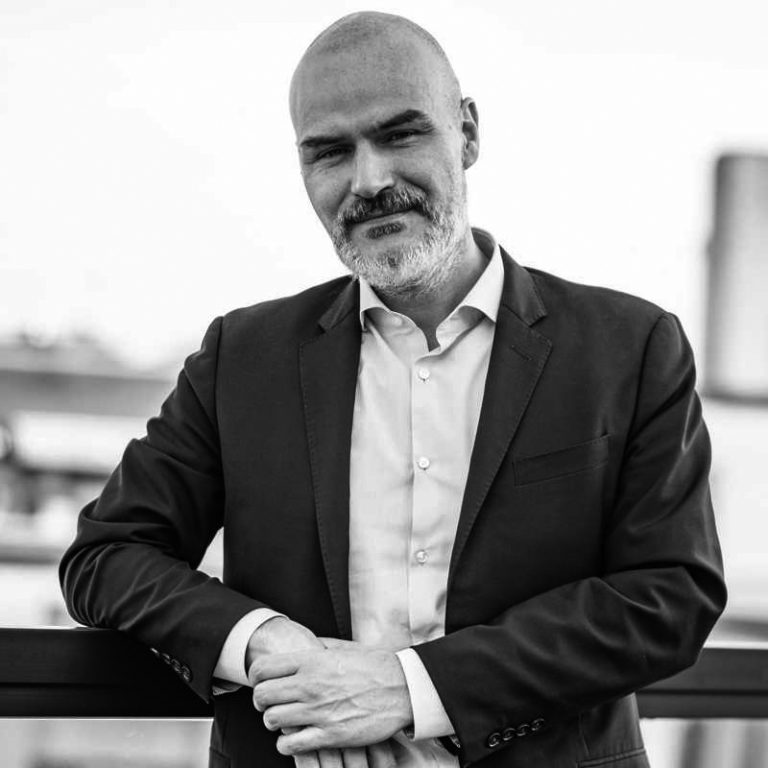
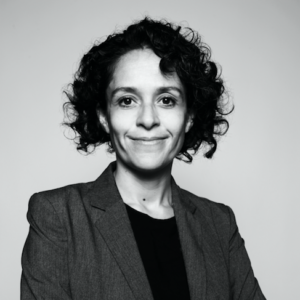

Andrés Lozano,
Strategic Planning Director

Nigora Isamiddinova,
Resilient Livelihoods and Ecosystems Program, Former Director
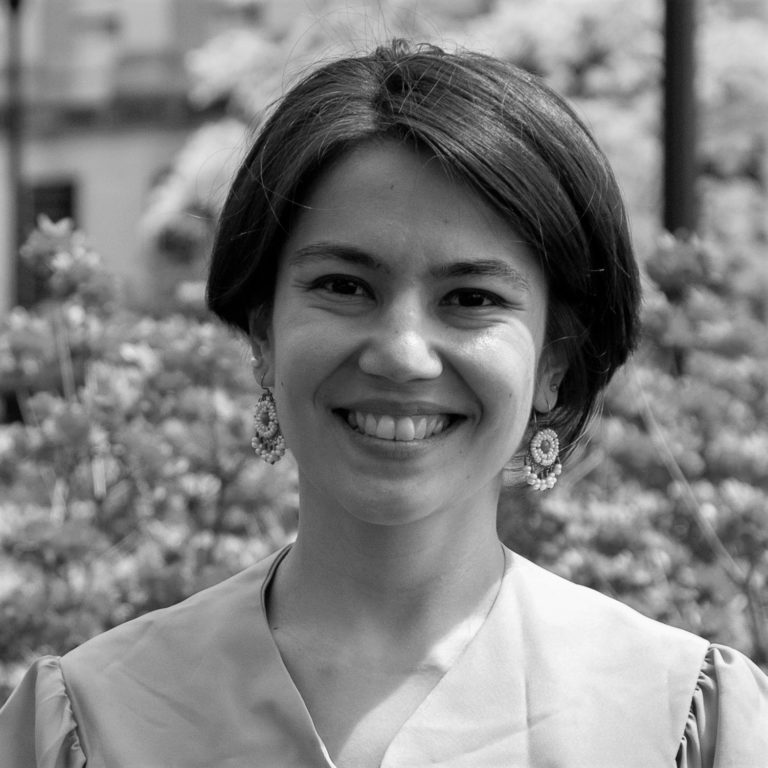
Anna Spinardi,
Data Feminism Program Director

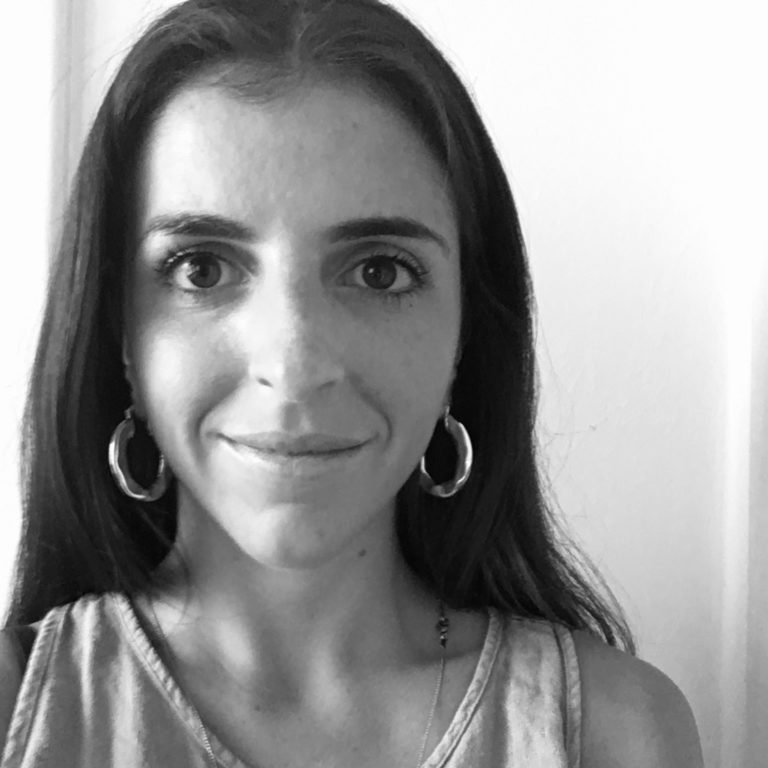

Publications
(Reports, Articles, Policy Briefs, Handbooks, Journalistic Investigations, etc.)
Co-Authors
English, French, Portuguese and Spanish
Featured
Conferences and Events
UN World Data Forum, Code for All Summit, Paris21 Spring Meeting, MozFest, and more...
Countries
Featured
State Data Agency of Lithuania 2023 "The Key: Visions and Transformations".
January 19, 2023. Lithuania.
Speaker: Emmanuel Letouzé.
MozFest 2023.
March 24, 2023. Online.
Speakers: Julie Ricard, Ivette Yáñez.
UN World Data Forum
April 25-26, 2023. Online.
Speakers: Anna Spinardi, Zinnya del Villar.
World Food Program (WFP) Humanitarian Innovation Pitch Event.
June 29, 2023. Luxembourg.
Speakers: Talla Ndiaye, Nigora Isamiddinova.
State Data Agency of Lithuania 2023 "The Key: Visions and Transformations".
January 19, 2023. Lithuania.
Speaker: Emmanuel Letouzé.
MozFest 2023.
March 24, 2023. Online.
Speakers: Julie Ricard, Ivette Yáñez.
UN World Data Forum
April 25-26, 2023. Online.
Speakers: Anna Spinardi, Zinnya del Villar.
World Food Program (WFP) Humanitarian Innovation Pitch Event.
June 29, 2023. Luxembourg.
Speakers: Talla Ndiaye, Nigora Isamiddinova.
Workshops and Events
Participants
Ghana, Mauritania, Morocco, Senegal, Thailand, UK and online
Featured
GIZ Data Feminism Series: From Talk To Action.
January 17 & February 1, 2023. Online.
Partner: GIZ Data Lab.
Workshop Data and Algorithms to Measure and Prevent Gender Based Violence in the UK.
March 28, 2023. United Kingdom.
Partners: University of Surrey, Economic and Social Research Council (ESRC).
Presentation Ceremony of Senegal National Data Strategy.
July 25, 2023. Dakar, Senegal.
Partners: Ministère de la Communication, des Télécommunications et de l’Economie Numérique du Sénégal, Smart Africa, GIZ on behalf of the Federal Ministry for Economic Cooperation and Development (BMZ).
Advanced Training on Big Data for Gender Responsive SDG Monitoring.
November 8-9, 2023. Bangkok, Thailand. Partner: UN Women. Learn More
GIZ Data Feminism Series: From Talk To Action.
January 17 & February 1, 2023. Online.
Partner: GIZ Data Lab.
Workshop Data and Algorithms to Measure and Prevent Gender Based Violence in the UK.
March 28, 2023. United Kingdom.
Partners: University of Surrey, Economic and Social Research Council (ESRC).
Presentation Ceremony of Senegal National Data Strategy.
July 25, 2023. Dakar, Senegal.
Partners: Ministère de la Communication, des Télécommunications et de l’Economie Numérique du Sénégal, Smart Africa, GIZ on behalf of the Federal Ministry for Economic Cooperation and Development (BMZ).
Advanced Training on Big Data for Gender Responsive SDG Monitoring.
November 8-9, 2023. Bangkok, Thailand. Partner: UN Women. Learn More
Team Members
worked at DPA in 2023, 44% were men; and 56% were women
Languages
Countries

































Thematic Programs
Projects 2023
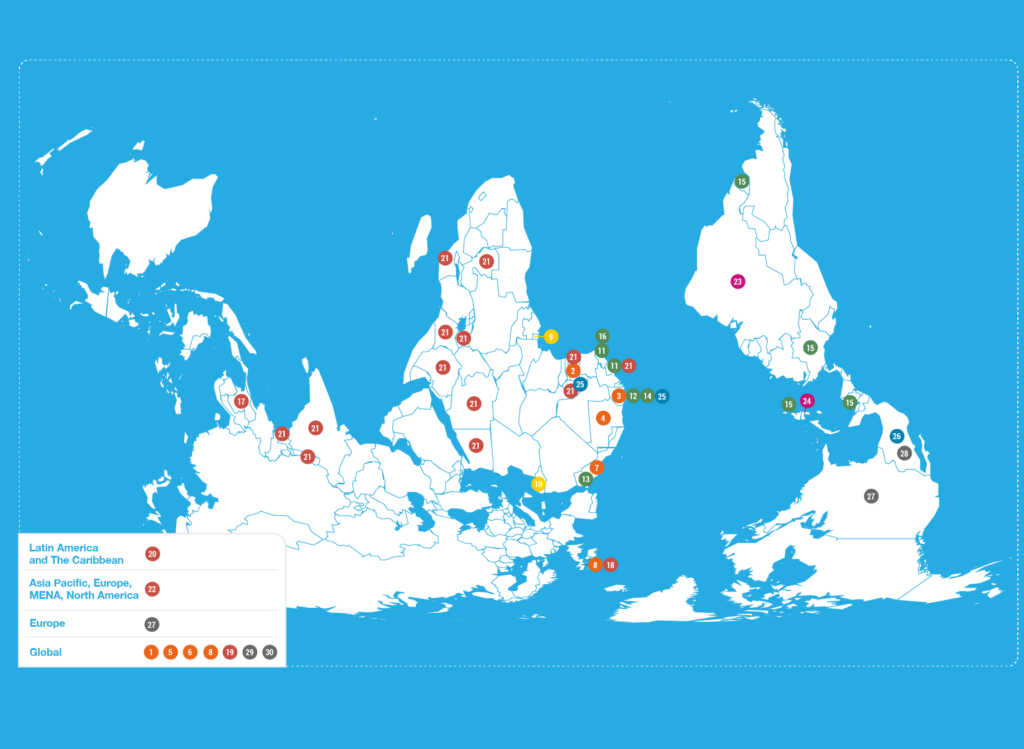
Just Digital Transformations
- After-Action Review of NRC Digital Community Hubs
- Development of Ghana's National Data Strategy
- Development of Senegal’s National Data Strategy
- Enhancing Data Interoperability and Open Data in Mauritania: A Market Evaluation and Recommendations
- Enhancing UNICEF’s Technology Playbook
- Evaluation of the WFP´s Disaster Risk Reduction and Management and Climate Change Policies
- Feasibility Study for the Establishment of a Category 2 Center Under the Auspices of UNESCO on Artificial Intelligence
- Workbook Series: Applying the FAIR Data Principles to Agricultural Development
AI and Statistics for the SDGs
Resilient Livelihoods and Ecosystems
- Assessing Africa’s Borderlands Informal Social Protection Mechanisms in Liberia and Sierra Leone
- Climate-Induced Migration in Africa and Beyond: Big Data and Predicative Analytics (CLIMB)
- Exploiting the Possibilities Offered by Big Data to Monitor the Achievement of the Sustainable Development Goals in Morocco
- OPAL for Humanitarian Action (OPAL4HA)
- Supporting the Development of Comprehensive and Responsive Social Protection Systems for the Resilience of Vulnerable Households
- Study of the Drivers of Sustainable and Inclusive Development (DoD) in Liberia
Data Feminism
- Advanced Training on Big Data for Gender-Responsive SDG Monitoring
- Data and Algorithms to Measure and Prevent Gender Based Violence (GBV) in the UK
- GIZ Data Feminism Series
- Increasing and Strengthening the Availability of Digital Sexual and Reproductive Health Services with Youth-Friendly Approaches in Latin America
- Landscape Mapping and Review of Technology-Based Interventions to Address Child Marriage and Female Genital Mutilation Across 13 Countries in Asia and Africa
- Regional Consultations: Towards Real Diversity and Gender Equality in Artificial Intelligence - Global Partnership on Artificial Intelligence Project
Geographies of Inequalities
Technology and Democracy
Just Digital Transformations
- After-Action Review of NRC Digital Community Hubs
- Development of Ghana's National Data Strategy
- Development of Senegal’s National Data Strategy
- Enhancing Data Interoperability and Open Data in Mauritania: A Market Evaluation and Recommendations
- Enhancing UNICEF’s Technology Playbook
- Evaluation of the WFP´s Disaster Risk Reduction and Management and Climate Change Policies
- Feasibility Study for the Establishment of a Category 2 Center Under the Auspices of UNESCO on Artificial Intelligence
- Workbook Series: Applying the FAIR Data Principles to Agricultural Development
AI and Statistics for the SDGs
Resilient Livelihoods and Ecosystems
- Assessing Africa’s Borderlands Informal Social Protection Mechanisms in Liberia and Sierra Leone
- Climate-Induced Migration in Africa and Beyond: Big Data and Predicative Analytics (CLIMB)
- Exploiting the Possibilities Offered by Big Data to Monitor the Achievement of the Sustainable Development Goals in Morocco
- OPAL for Humanitarian Action (OPAL4HA)
- Supporting the Development of Comprehensive and Responsive Social Protection Systems for the Resilience of Vulnerable Households
- Study of the Drivers of Sustainable and Inclusive Development (DoD) in Liberia
Data Feminism
- Advanced Training on Big Data for Gender-Responsive SDG Monitoring
- Data and Algorithms to Measure and Prevent Gender Based Violence (GBV) in the UK
- GIZ Data Feminism Series
- Increasing and Strengthening the Availability of Digital Sexual and Reproductive Health Services with Youth-Friendly Approaches in Latin America
- Landscape Mapping and Review of Technology-Based Interventions to Address Child Marriage and Female Genital Mutilation Across 13 Countries in Asia and Africa
- Regional Consultations: Towards Real Diversity and Gender Equality in Artificial Intelligence - Global Partnership on Artificial Intelligence Project
Geographies of Inequalities
Technology and Democracy
Projects 2023
Million USD in Funding
Donors
Million USD in Funding
Donors
Support
Our Work
Credits
Social Media
Credits and Social Media
Authors: Ivette Yáñez Soria, Anthony Deen,
Amanda Quitério, Emmanuel Letouzé
Design: Angela Paola Caile, Ivette Yáñez Soria
Photography Credits: 18-55 Magazine, Andrew Heald, Hessam nabavi, Mika Ruusunen, Azamat Zhanisov on Unsplash
Suggested citation: Data-Pop Alliance (DPA),
(2024). Overview and Outlook 2023-2024. Annual Report.
https://datapopalliance.org/annual-report-overview-and-outlook-2023-2024
Copyright Data-Pop Alliance 2024.
All rights reserved.


